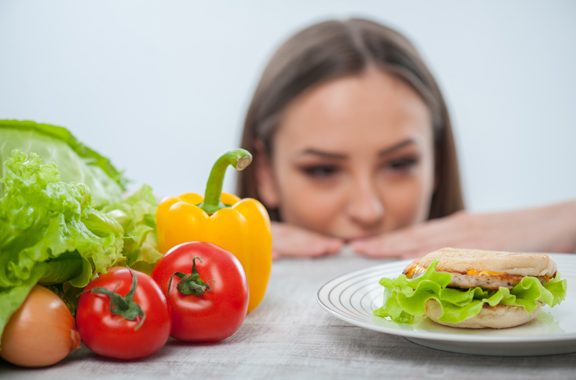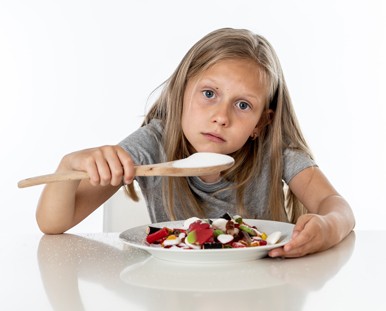Why Reading Labels is Important
As I have been navigating my allergies for the last few months, there was one aspect of food shopping that I have had to do that I’ve pretty much neglected previously; reading the labels and packaging of my food. Since I’ve been hit with the double whammy of both allergies to wheat/gluten and dairy, I have found that I need to look at labels more closely. Just because something is gluten free, doesn’t necessarily mean it doesn’t contain dairy and just because it’s dairy free doesn’t mean it doesn’t contain gluten. I have also been trying my best to be diligent about reading the allergy disclaimer, “Processed in a facility with wheat, dairy, soy” or “May contain traces of milk, wheat, soy”. I think you get the picture. I was surprised, as I was first starting to navigate my way through my allergies, that a lot of the meat substitutes that I liked to use and consume, especially Morning Star Farms, contained gluten. So did the Boca patties and meatless crumbles that I enjoyed so much. To my frustration, I had to return a few items to Giant because of my newfound restrictions due to the products containing gluten and dairy. Totally not my fault, but that was my first lesson in the need to really look at the labels and the ingredients closely.
What I have also discovered is that it’s not just food that contains allergens. Supplements that you buy from the health food store or at your local drug store could contain gluten and/or dairy. I bought a probiotic once at my health food store that I thought was okay and I presumed that it was non-dairy. Turned out that it contained some form of lactose, which was a bit of a surprise because 1. It wasn’t in the refrigerator case, 2. It was recommended by one of the ladies who worked there and she can’t have diary either, and 3. I didn’t bother to read the label to see what was actually in it. I was subsequently put back on the probiotic that was recommended by my Wellness Practitioner (after not taking it for at least a month because it wasn’t among the products she gave me to take that month).
There are three questions that you need to ask yourself when you are out buying food, supplements or beauty products:
Is it safe for me to eat?
This is pretty much where you have to take the time at the store and read the packaging. It will say “Gluten Free”, “Dairy Free/Vegan” somewhere on the label or box. I have learned that just because it doesn’t have dairy, it could have wheat/gluten in it and just because it’s gluten free, that doesn’t mean it won’t have dairy. The best choices, especially for me, are food products that state that they don’t have wheat or state specifically that they are gluten free, state that they are dairy free/vegan, or both, preferably, if applicable. Being of the Jewish faith and having to do this a lot when I was younger going food shopping with my dad, I have found looking for the little kosher symbol along with the word “Parve” is helpful in indicating that something is dairy free (Parve is a food item that is neither meat nor dairy and can be consumed with either or on its own). For frozen desserts and dairy products, if it is made with coconut milk, it should be fine. However, no matter what I go to buy, I still make it a point to read the allergy information at the bottom for any possibility of cross contamination. Also, when I go to buy gluten free products, I have to double check if it contains Sorghum Flour, which I’m also not supposed to have. Sorghum flour is a high protein flour found in a lot of gluten free products and that is one more thing that I need to avoid and make sure that it is not among the ingredients.
Another thing that spooked me fairly recently was when I was looking at the ingredients of the packet of turkey I bought from the supermarket out of the grab and go deli case. I noticed that it contained potassium lactate, which sent me into a bit of a panic. Potassium lactate is a compound that is used as a preservative to extend the shelf life of deli meats and poultry. After reading that in the ingredients list, I think I better buy organic from now on.
Is it safe for me to ingest?
Believe it or not vitamins and other supplements that you may take on a daily basis may contain gluten, dairy, or both. I have been trying to make it a point to try and purchase supplements that are vegetarian, however, now I have to make sure that they’re not just vegetarian, for the most part, they also have to be gluten free. As for probiotics, some of the ones that are in the refrigerator case at the health food store contain dairy. I shouldn’t have presumed at the time that something was safe to take as a supplement just because of the presumption that it didn’t contain dairy. Lesson learned. Another thing to be careful of is some of the over the counter remedies we would take such as antacids can contain gluten and/or dairy.
Is it safe for me to use on my skin/hair?
I bring this question up because of something that happened to my friend Diana, who I have known since we went to college together. Like me, Diana has an allergy to wheat/gluten. She bought a shampoo from one of these chain beauty stores and it caused her hair to become brittle and start breaking off. She looked at the ingredients on the shampoo bottle and saw that wheat was among the ingredients. She’s not sure if that was some weird fluke thing of if her hair reacted to the wheat in the shampoo. Soaps, shampoos, facial cleansers, and other beauty products have ingredients that can cause allergic reactions and may contain gluten, however it has been scientifically proven (reportedly) that gluten cannot be absorbed through the skin. I met a really nice lady a while ago at the Wrightstown Farmer’s Market who was selling soap and she stated in her brochure, “If you can’t eat it, don’t put it on your skin” and no, she wasn’t suggesting that we should start eating soap. I absolutely agree with that sentiment, if you think you may react to it or have reacted to it, don’t use it. I have noticed recently that a lot of companies have taken initiative to label their products “Gluten Free”, which is nice.
Remember to read the labels on things that you purchase. Sometimes we neglect to do so because we are in a hurry (I know I am guilty of such thing), but taking a couple minutes to read what is on the package can save you aggravation and wasted money.




